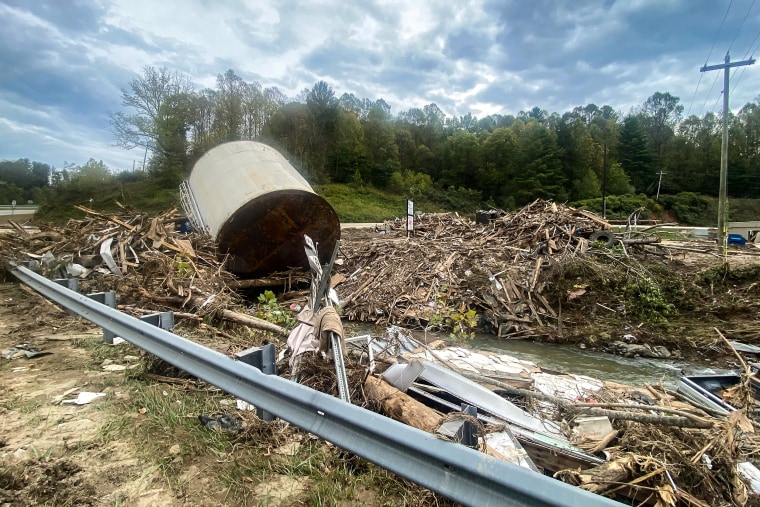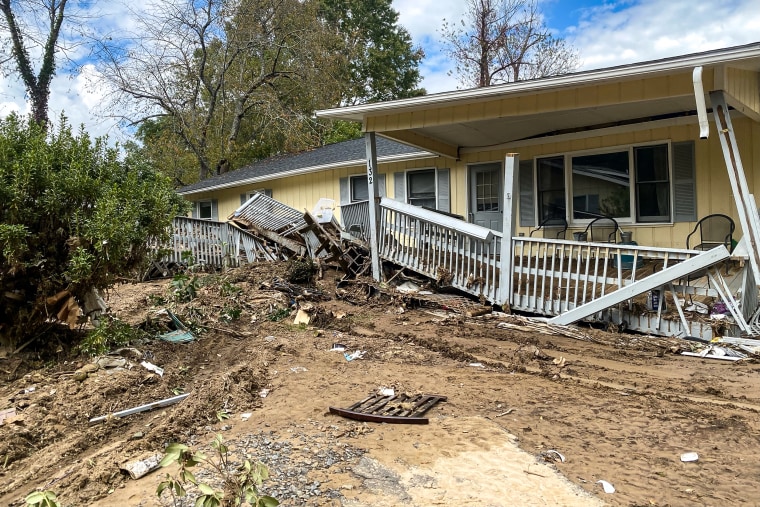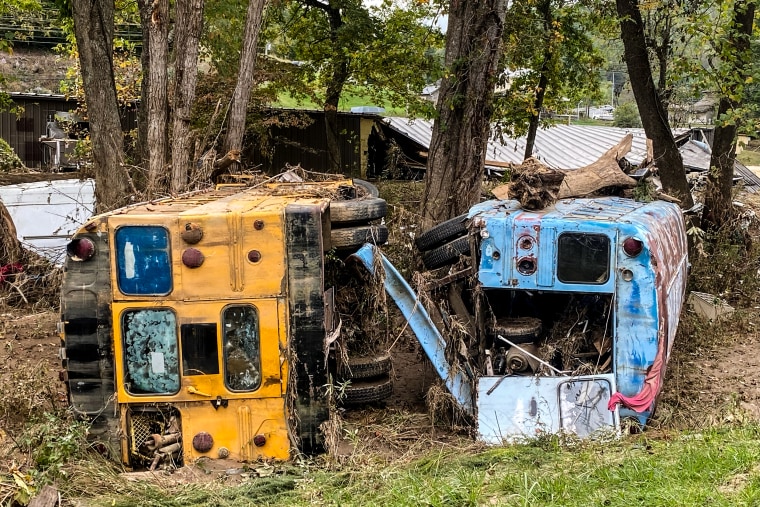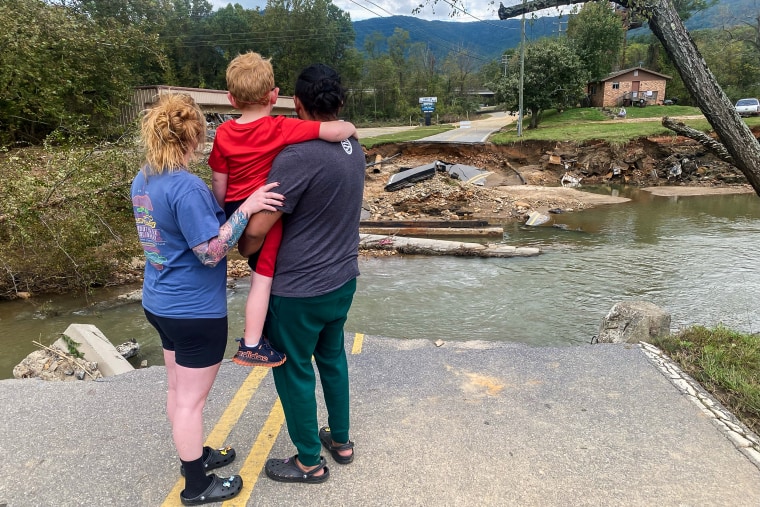BAKERSVILLE, NC – In Mitchell County, a mountainous and remote region of North Carolina that has become even more remote in the aftermath of Hurricane Helene, residents are trying to make sense of the unthinkable.
“Where should we go?” asked Susan Allen Wroblewski, 70, who also calls Sarasota, Florida, home for a few months a year. “We are the hardest hit. It’s been stressful. Just not having power and not being able to communicate and get in touch with friends.”
Some Bakersville residents have taken rebuilding efforts into their own hands by helping clear and repair roads this week, Mitchell County Deputy Austin Duncan said Friday.
“We had people coming by with chainsaws and heavy equipment asking where they could help,” he said.

Thousands of trees were toppled by Helene’s rage, mangled train tracks were left on the riverbeds, and school buses were blown away.
The Mitchell County building was flooded, as were the sheriff’s office and the transportation authority. For the foreseeable future, deputies will work out of the decommissioned Bowman Middle School, Duncan said.
Hurricane Helene and its relentless flooding have killed at least 223 people in the country’s southeast, and the death toll could continue to rise as dozens of people remain missing since the storm made landfall in Florida on September 26.
Across western North Carolina, including Asheville and surrounding Buncombe County, uprooted homes, flooded vehicles and submerged roads illustrate the devastation caused by a brutal hurricane.

Access into and out of Black Mountain was more challenging, and here too, homes were lifted and dumped into creeks.
Toys, wallets, tires, milk containers and other personal belongings are scattered haphazardly, thrown far from where they once were.
Black Mountain resident Diane Douglas, 58, is cleaning out her unlivable home. Because she didn’t have flood insurance, she doesn’t know what the future holds.
High water from a nearby dam forced a storage unit from across the street into a modular home, which then rammed into her house next door.
“It’s just sweat and equality,” Douglas said through tears. “It’s just too much.”

Douglas, whose shirt and shorts were covered in mud, says she runs a business from home but doesn’t make much money.
“It’s heartbreaking,” she said.
Behind her house was a group home for adults with disabilities.
Of the yellow-colored buildings that stood there a week ago, one was thrown into the river, another uprooted and the remaining two torn apart.
Empty lots, bricks and old vinyl albums are all that remain.
A once heavily traveled road next to a creek in Black Mountain sank during the storm, making it unmanageable and difficult to cross.

“We have to walk through our neighbor’s house to get to our house,” said 32-year-old Dylan Shook, whose driveway and mailbox were also tossed aside.
Ignacio Espino, 27, stood in awe at the edge of town, looking out at yet another section of road that sloped steeply into the river below.
Espino waited out the hurricane at Black Mountain Academy, where he works with children with autism.
“I’m in shock,” he said.


